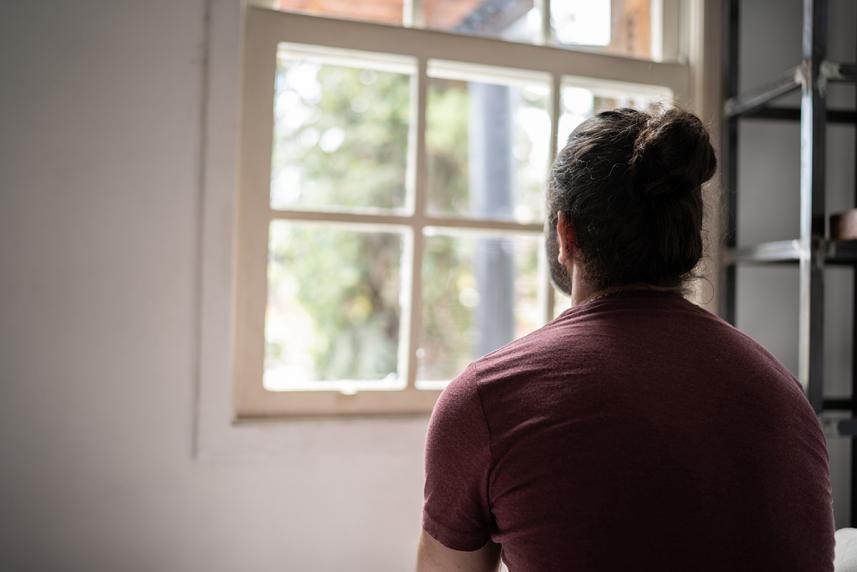
Panic attacks: The Optum Store Guide

Panic attacks can be scary. Our guide will help you understand the symptoms and causes of these intense episodes — and how you can overcome them.
- What is a panic attack?
- What are the symptoms of a panic attack?
- How long does a panic attack last?
- Who is at risk of having a panic attack?
- What causes panic attacks?
- Are panic attacks harmful to your health?
- What can you do if you’re having a panic attack?
- If you’ve had your first panic attack, will you get more?
- When should I get help to treat my panic attacks?
- Are there any effective treatments for panic attacks?
Out of nowhere, your heart starts racing, you’re dizzy and you start sweating. You also feel a major wave of fear. Whoa — what’s going on? You might be having a panic attack.
Panic attacks can affect anybody, and they can strike at any time. They often happen for no apparent reason. These episodes of intense fear trigger severe physical reactions, even though the person experiencing them is not in any danger.
Panic attacks can be very scary. But there are ways to get them under control. Our guide answers all your questions about why panic attacks happen, what they feel like and how to treat them.
What is a panic attack?
A panic attack is an episode that causes sudden, brief feelings of overwhelming fear in response to ordinary, nonthreatening situations, according to the Cleveland Clinic.
Panic attacks trigger physical reactions such as elevated blood pressure, rapid breathing, a pounding heart, dizziness and nausea. Sometimes people think they’re having a heart attack.
Your body reacts as if you’re in a dangerous situation, but you can have a panic attack when you’re doing everyday things. You could be watching TV at home, walking down the street, sitting at your desk or having dinner with friends.
What are the symptoms of a panic attack?
A panic attack causes physical and emotional changes in the body. You’ve officially had a panic attack if you’ve experienced 4 or more of the symptoms below at the same time.
Physical symptoms of a panic attack:
- Trembling or shaking
- Sweating or chills
- Shortness of breath
- Feeling dizzy or lightheaded
- Ringing in the ears
- Chest pain or discomfort
- Nausea or stomach pain
- Tingling sensations in the extremities
- Pounding or accelerated heart rate
- Feelings of being choked or smothered
Psychological symptoms of a panic attack:
- A feeling of being detached from yourself
- A sense of unreality
- Fear of going crazy
- Fear of dying
- Fear of what will happen next
- Fear of losing control
How long does a panic attack last?
Although a panic attack may pass relatively quickly, it could feel like an eternity. Panic attacks usually reach peak intensity in 10 minutes or less, according to the Anxiety and Depression Association of America. Then the symptoms go away.
But the physical and emotional effects can last for a few hours, says Joanne Frederick, EdD. She is a licensed mental health counselor in Washington, D.C., and the author of Copeology. You might feel tired or mentally drained after an attack.
Who is at risk of having a panic attack?
Panic attacks can happen to anybody. Every year, about 11% of Americans have one, according to the Cleveland Clinic. But certain people may be at greater risk than others, including:
-
Women (they are twice as likely as men to get panic attacks)
-
Those in their teens and 20s. Panic attacks usually begin when a person is young. But you can start to experience them in your 30s, 40s and beyond.
-
People with a family history of panic attacks, panic disorder, anxiety or depression
-
Anyone dealing with a major life change (such as divorce or having a baby)
-
People who have experienced a traumatic event (such as a car accident or sexual assault)
-
Smokers and people who consume a lot of caffeine
(To find out more about anxiety disorder, read Anxiety: The Optum Store Guide.)
What causes panic attacks?
Scientists don’t know for sure what causes panic attacks. But certain things may play a role in triggering them, according to the National Institute of Mental Health:
-
Genetics
-
Certain biological changes in your brain
-
A false alarm sent out by your body’s natural fight-or-flight response (a surge of stress hormones that causes your heart rate and breathing to increase to help you survive a threat)
-
Major stress (such as the death of a loved one, serious illness or job loss)
Are panic attacks harmful to your health?
No. The panic attack itself won’t harm you. Your heart is racing, but that’s not dangerous. It can help to remind yourself that your heart also pounds after you finish an intense workout or have sex.
Your response or reaction to it could be harmful, though, says Jennie Marie Battistin, a licensed marriage and family therapist in Burbank, California. She is the author of Mindfulness for Teens in 10 Minutes a Day. For instance, you may be driving or walking when a panic attack hits. If so, you may not be as alert to your surroundings as you should be. Or you might try self-medicating with alcohol or drugs to cope with the fear.

What can you do if you’re having a panic attack?
Mental health experts say there are some strategies that can keep you calm during a panic attack.
-
Remind yourself that it will pass quickly. It can be scary to experience a panic attack. Tell yourself that the feelings will pass soon, and it won’t cause any physical harm. “Try acknowledging that this is a brief period of concentrated anxiety, and it will be over soon,” Frederick says.
-
Keep doing what you were doing. Whether you’re in a meeting, playing a game with your kids or watching a movie, try not to remove yourself from the situation. Doing so can backfire because you will start associating that place or thing with having a panic attack.
-
Try deep-breathing exercises. Panic attacks cause rapid breathing with chest tightness. And taking shallow breaths can make your anxiety and tension worse. Try one of these stay-calm techniques:
- In and out. Count to 4 as you slowly inhale, then count to 4 as you slowly exhale. Focus on keeping your breaths even. Repeat.
- 4-7-8 technique. Inhale for 4 seconds, hold your breath for 7 seconds, then slowly exhale for 8 seconds. Repeat.
(Read more about mindful breathing here.)
- In and out. Count to 4 as you slowly inhale, then count to 4 as you slowly exhale. Focus on keeping your breaths even. Repeat.
- Focus on an object. Concentrating on something physical nearby — a painting, a tree or anything else — can help you shift your focus and feel grounded. If panic attacks become a recurring issue, you might even carry around a familiar object, such as a smooth stone, seashell or small toy. Hold it in your hand to help steady yourself when you feel an attack coming on.
-
Count things. Try the 5-4-3-2-1 method of focusing on something else:
- Look at 5 different objects, thinking about each for a few seconds.
- Touch 4 objects, noticing their texture and temperature.
- Listen for 3 distinct sounds, thinking about where they come from and what sets them apart.
- Identify 2 different smells.
- Name 1 thing nearby that you can taste.
-
Distract yourself. Other coping techniques that can calm you down:
- Rub ice on the back of your neck.
- Count backward from 500.
- Say the alphabet 3 times.
- Name all the players on your favorite sports team.
If you’ve had your first panic attack, will you get more?
Many people will have only 1 or 2 panic attacks in their lifetime. In fact, the problem often fades away.
But about 2% to 3% of people who have had a panic attack will go on to develop a panic disorder, according to the Cleveland Clinic.
With a panic disorder, you get repeated, unexpected panic attacks. These can strike several times a day, every few weeks or much less frequently.
People with a full-blown panic disorder spend time worrying about when the next attack will occur. They will change their routine to avoid having another episode. If you have a panic attack on the bus, for example, you may stop taking the bus. Or if you had a panic attack at the grocery store, you might start getting your food delivered because you’re so nervous about it happening at the store again. That kind of behavior can end up taking over your life.
When should I get help to treat my panic attacks?
It’s a good idea to talk with your doctor after your first panic attack, just to make sure there is no medical cause.
If panic attacks start interfering with your daily life, you should get help. Your doctor can refer you to a psychologist, psychiatrist or mental health counselor who has experience with treating panic attacks.
If you don’t seek treatment for panic attacks, you can develop certain complications. According to the Mayo Clinic, those may include:
-
Specific phobias, such as a fear of driving or of leaving your home
-
The need for frequent medical care for health concerns
-
Avoiding social situations
-
Problems at work or school
-
Depression, anxiety disorders and other psychiatric disorders
-
Increased risk of suicide or suicidal thoughts
-
Alcohol or other substance misuse
-
Financial problems
Are there any effective treatments for panic attacks?
Yes. The 2 main types of treatments are cognitive behavioral therapy (CBT) and medication — or a combination of both. These treatments can be effective at helping you cope with panic attacks.
Cognitive behavioral therapy
This is one of the most effective therapies for addressing panic attacks. With CBT (also called talk therapy), you learn different ways of reacting to your symptoms. The focus is on helping you realize that the symptoms you feel during an attack are not dangerous.
That can help you ride them out and take away their power over you. “Episodes can become less frequent once you learn to respond differently to any physical sensations of anxiety and fear,” Frederick says.
Medications
Certain antidepressants are effective at reducing panic attacks. You don’t have to be depressed for them to work, points out the American Academy of Family Physicians. A psychiatrist can prescribe antidepressants.
-
SSRIs (selective serotonin reuptake inhibitors) approved by the U.S. Food and Drug Administration (FDA) to treat panic disorders include:
- Fluoxetine (Prozac®)
- Paroxetine (Paxil®, Pexeva®)
- Sertraline (Zoloft®)
-
An SNRI (serotonin and norepinephrine reuptake inhibitor) called venlafaxine (Effexor XR®) is also FDA-approved for treating panic attacks.
-
Benzodiazepines such as alprazolam (Xanax®) are used for short-term treatment of panic disorders. They pose a danger in the long term because they can be habit-forming, per the Mayo Clinic.
Bottom line: With the right treatment, you can overcome panic attacks. Don’t be embarrassed to seek help.

Additional sources
Panic attack basics: Cleveland Clinic (2020). “Panic Disorder”
Duration of panic attack: Anxiety and Depression Association of America (n.d.). “Panic Disorder”
Panic attack triggers: National Institute of Mental Health (2022). “Anxiety Disorders”
Complications: Mayo Clinic (n.d.). “Panic Attacks and Panic Disorder”
Our expert panel
Joanne Frederick, EdD, licensed mental health counselor in Washington, D.C., and author of Copeology
Jennie Marie Battistin, licensed marriage and family therapist in Burbank, California, and author of Mindfulness for Teens in 10 Minutes a Day